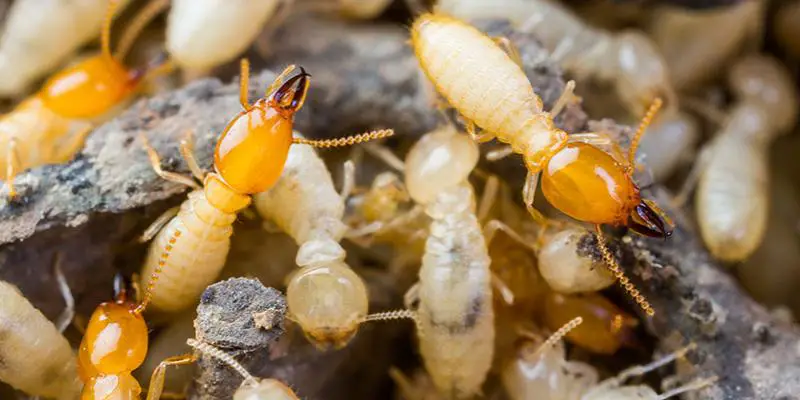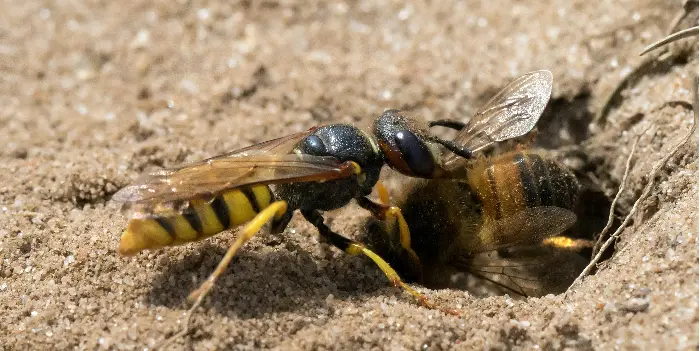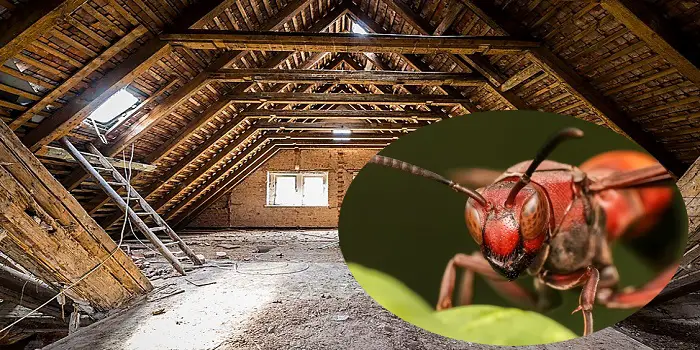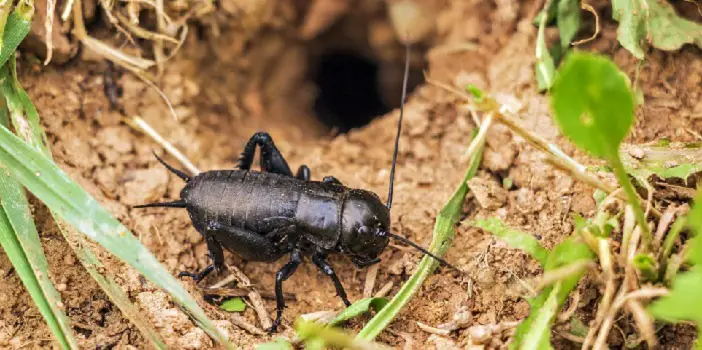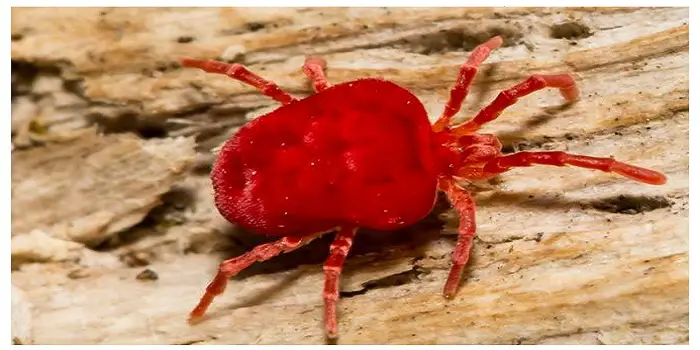
Although many members of the arachnid family, especially the non-poisonous ones, offer benefits to humans by getting rid of unwanted insects – the chigger is no such friend of people.
Chiggers are arachnids, but they are also parasites that feast on your skin.
Unfortunately, they are so small, which makes them difficult to see and feel their bite until they have done considerable damage.
Most people will not realize chiggers have bitten them until they feel the itch start to grow on their skin.
That itch may last up to two weeks, and if you have plenty of bites, it can be a miserable experience.
Many people do find comfort in that most chiggers can only be found in the wild.
But what happens when they invade your backyard?
I will discuss the ways how you can deal with them in your backyard or garden, but first, let’s check out how you can identify these critters.
Identifying Chiggers
Of course, the surest way of identification is the itch you feel from their bite.
But that is not the most desirable method to identify if you have chiggers.
There is a simple, inexpensive test you can perform that will help you identify chiggers in your yard.
Start by wearing protective clothing, particularly around your feet, ankles, and legs.
Then, locate an area in your yard of thick grass or vegetation, mainly if it is moist. This is where chiggers like to stay.
Then, place a piece of black cardboard 6” x 6” on that area and step back.
Within a few minutes, tiny red spiders should gather on top.
Those are chiggers, and against the black surface, their red bodies will make them easy to spot.
Remember to check other areas of thick vegetation that are moist and have some shade.
These are places where female chiggers will lay their eggs.
So, just because you do not find them in one part of your yard does not mean they do not exist in another.
How to Eradicate Chiggers?
What if you find chiggers have made your yard a home?
You will definitely want them to go off.
Keep in mind that it can be difficult to fully get rid of chiggers. But there are things you can do to reduce their presence significantly.
Identify the areas in which they are living and find whatever it is that is keeping them in that location.
It may be that the grass or vegetation is providing cover.
It’s also possible that pets or animals may be carrying them, and the chiggers drop off at a certain location.
Whatever the case, identifying and addressing such areas will go a long way towards getting rid of them.
The best way to eliminate chiggers from your yard is using diatomaceous earth.
This relatively inexpensive substance does wonder in dissuading chiggers from staying around.
Sprinkle it liberally around the yard, especially in prime living areas for chiggers. And it will help get rid of the chiggers pretty fast.
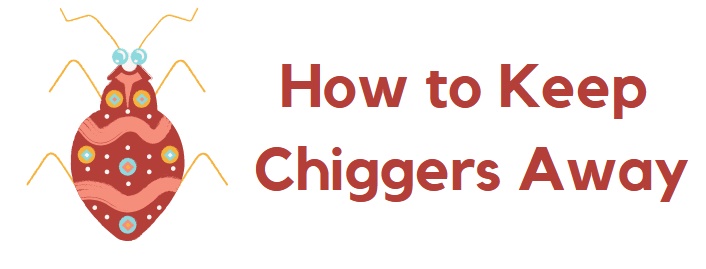
Prevention Tips to Keep the Chiggers Off
The easiest way to prevent chiggers from entering your yard is to get rid of any thick, moist vegetation.
You’ll want to mow down such areas, so they are not nearly as dense and cannot hold as much moisture.
You will also want to try the following strategies as they can help…
- Get rid of any buildup of leaves
- Thin out any shrubs, trees, or bushes
- Reinforce the fence to keep them out as well
- Remove the weeds and use insect repellent like DEET
- Get rid of any ground cover that might provide shade, apart from trees
Keeping your lawn mowed to only provide thin cover will go a long way to keeping chiggers away.
This includes weeding and pruning plants to reduce their coverage as well.
In addition to not providing chiggers with a place to lay their eggs, this should help prevent other animals and amphibians that might carry chiggers with them to your yard.
Of course, you can wear repellent that is designed to keep chiggers away.
Plus, if you take a hot shower after coming back inside right away, you may wash off any chiggers present before they have a chance to bite.
What Causes Chigger Bites – What to Do About It?
Chiggers mostly bite during late spring and summer when the grass and vegetation are at their peak.
You may experience the bites usually when you are near the grass or crops in a sunny location.
Chiggers and the mite larvae tend to get attached to people via their clothing, particularly around the areas where the clothes are tight (like around the waist, groin area, bra line, elbows, knees, and ankles).
The mite larvae not only prey on humans but can feed on cats, dogs, reptiles, and even birds.
They bite and feed on their host’s skin cells by attaching their claws tightly to their victim and then piercing the skin to inject their saliva.
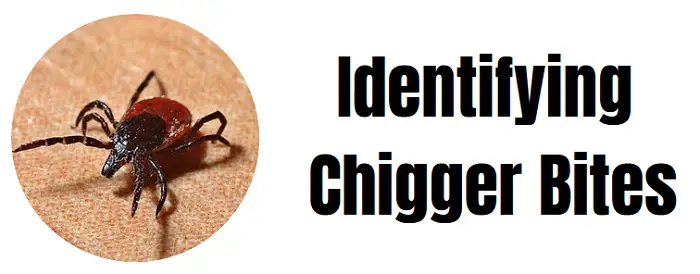
What does the bite look like?
Chigger bites generally appear as a red welt with a white, hard center.
Although it does not transmit any kind of infectious disease to people, the symptoms can be more than intense itching.
These symptoms include swelling and fever, which usually appear after 3 to 6 hours of the injection of mite’s saliva into the skin.
What worries most about these tiny critters is that chigger mites can stay latched for several days and bite more than once.
That’s the reason the bites may appear in groups or get larger with time.
How do you treat the bites and heal the itching?
Fortunately, there are different ways and home remedies to relieve and treat chigger bites.
Few of them tend to be more effective than others.
Since people may react differently to different conditions, you may need to try more than one way to get complete relief.
Keep in mind that chiggers can stay attached for days – to feed on your broken skin cells.
And continuous scratching due to their bites can turn out to be infectious.
So, as a first step, you will need to check your body and clothing to see if any chiggers or larvae are still attached.
To remove the chiggers, take a shower and wash your garments in hot, soapy water as soon as you get indoors after a walk or hike.
If chiggers have bitten you, you can try these home remedies to make yourself comfortable…
- Wash the bitten area with soap and water
- Put antiseptic and use over-the-counter anti-itch medicine to relieve itchiness.
- Apply a cold compress and avoid a hot bath/shower
Chigger bites should clear up on their own in a few days after trying the above methods.
But if it does not, you should see a doctor.
Also, the next time you go near heavy brush or tall grass – try to wear long sleeves, insect repellant pants, and socks pre-treated with permethrin.
Make sure your pants are tucked properly in your shoes/boots.
Other Related Questions:
How serious are chiggers?
Unless you are a hiker, hunter, or camper who loves to spend time outdoors, chiggers should not be a serious concern for you.
Unlike many other parasites, these mites will target and feed on humans during their larval stage.
Also, compared to ticks and mosquitoes, they are less likely to infest homes or spread diseases.
Chiggers aren’t contagious, so they are also less dangerous for kids.
This simply means that your kids playing sports outdoors are at shallow risk of getting chiggers from another person or pets.
Can chiggers live in bedding?
Unlike bedbugs, chiggers cannot live in your bed, carpet, or upholstery because they need a warm body to get their regular meal and become adults.
These microscopic pests also differ from bedbugs in their biting pattern.
While bed bugs usually bite in a line (or in groups of three), chigger mites will bite randomly all over your body and are more focused on your legs.
Can pets carry chiggers into the house?
Chiggers (also known as berry bugs, harvest mites, red bugs, or scrub-itch mites) can live inside your dog’s or cat’s ears.
And you can tell their presence if you notice your pet scratching their ears a lot.
The good thing is humans do not get chiggers merely by contacting their pets.
But these critters, if not removed, can stay on your animal’s body and move into your home to spread around.
A good way to stop the chiggers from getting inside is bathing your dog in warm water (with some Epsom salt and a pet shampoo) when you take them out for long.
The Conclusion
Chiggers are found across the globe, including areas of North America, South America, Asia, Australia, Africa, islands of the Caribbean, etc.
They mostly thrive in warm, moist conditions, which means you will not see them in areas with colder climates.
Chiggers can be a real nuisance, especially in damp grassy areas like your backyard garden or near the streams and lakes.
You may or may not be able to get rid of all the chiggers from your yard, but you can do quite a bit to keep their presence to a minimum.
Hopefully, by following the above strategies during the early spring, summer, or even winter, you can address potential areas of chigger infestation before they become problematic.
Share the post "How to Get Rid of Chiggers (Prevention Tips and Strategies)"

Welcome to ProShieldPest.com. I am Tina Jones. I have been working as a pest removal professional in Winslow, Arizona lately. At present, I love to spend my time with my family as a retiree.
Here I share all my knowledge and experiences to help people understand better how they can stop pests at their homes without actually killing them. Hopefully, the information you will find here will help in safeguarding your home! You can check more about me here.

